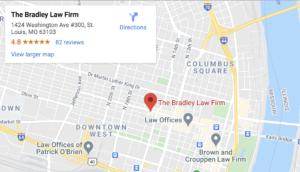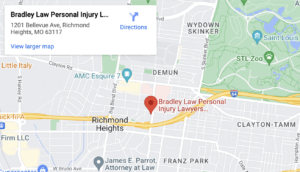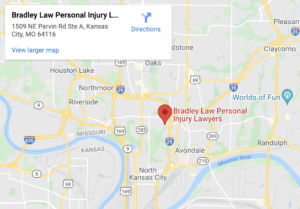
A personal injury lawyer who works on a contingency fee basis only gets paid if their case has a successful outcome. In other words, their client doesn’t pay unless the client is compensated for their injuries. Sometimes people refer to these as “no win no fee” arrangements. Contingency fee lawyers agrees to accept a fixed percentage (typically between 33 and 40 percent) of any settlement, jury award, or verdict in your case, rather than charging hourly fees.
Lawyers working on contingency do not charge a retainer or upfront fee. Accident victims using a St. Louis injury attorney never pay a penny from their pocket unless their lawyer recovers money for them first.
How Do Contingency Fees Work?
The contingency fee comes from the compensation that an attorney recovers for their client. If the attorney settles the personal injury claim, the payment will be deducted from that settlement amount. If the case ends up going to trial, the lawyer’s contingency fee comes from the verdict award.
This is the most important aspect of a contingent fee: an attorney does not recover any compensation unless they obtain a settlement or verdict.
Why Do Personal Injury Lawyers Use Contingent Fees?
Personal injury lawyers use contingency fees for almost all types of injury cases, including car accidents, slips and falls, medical malpractice, and other accident claims.
The contingency fee model is relatively standard among personal injury attorneys. That’s because obtaining quality representation in a liability claim can be very expensive. With the contingency fee model, people who cannot afford an attorney’s hourly rate have greater access to quality legal representation for their claims.
Most accident victims face expenses and hardship due to their injuries. They may have mounting medical costs, lost wages, and more. With contingency fees, they can hire an accident attorney without worrying about upfront legal fees.
If you or someone you love has been hurt in an accident, limited resources should not prevent you from filing a claim and getting the justice you deserve. Contingency fees are a win-win for the client and the lawyer because they align their interests.
A personal injury attorney will only accept cases with a significant chance for success. The greater the compensation the attorney can recover, the more money they get paid. Contingency fees give personal injury attorneys an incentive to seek the maximum recovery possible.
What is a Contingency Fee Agreement?
Most attorneys will have you sign an agreement before taking your case. This agreement will outline the lawyer’s obligations, your responsibilities as the client, and any costs associated with your personal injury claim. While each agreement will be different, clients will not pay anything out-of-pocket in most situations.
Costs that are typically addressed in a contingency fee agreement will include:
- Expert Analysis or Testimony: Some claims require experts to review records related to the case or provide testimony. When this happens, there will be additional costs.
- Certified Document Costs: Insurers, authorities, and hospitals often charge a fee to obtain official copies of documents and records. Such documents are usually crucial to a personal injury claim.
- Court Fees: If a personal injury claim ends up going to trial, court fees are usually incurred.
These fees are typically deducted from the settlement or court verdict. Personal injury lawyers working on a contingency fee will typically draw up an agreement that meets the needs of you and your loved ones.
What’s the Average Contingency Fee?
A contingency fee will depend on several factors, including:
- How much time or effort the attorney has to put into your case. Although there is no way to gauge the difficulty of a particular case in advance, experienced personal injury attorneys can usually estimate the time or effort that your case may involve.
- How much risk is involved in your case. Some cases have a lot of solid evidence, while others don’t. When the outcome of a case seems uncertain, a personal injury lawyer will need to risk time and resources to advance your case.
- Whether the claim is settled or goes to trial. While most claims settle before going to trial, that’s not always the case. When a settlement is reached, the process may move more quickly and, thus, be more cost-effective. If your claim ends up going to trial, you can expect your lawyers to spend additional time preparing, researching, and coordinating, which is more costly.
Other factors like your geographic location, your attorney’s skill, and the type of case may also impact the fee.
Contact an Attorney Today For Help With Your Personal Injury Case
Most injury lawyers offer free consultations for prospective clients. So, seeking legal advice involves virtually no risk. And with a contingency fee agreement, you can get the representation you deserve and the ally you need to get full compensation for your claim.
If you are looking to hire a lawyer on contingency, call our personal injury lawyers today for a free consultation to discuss your case.




